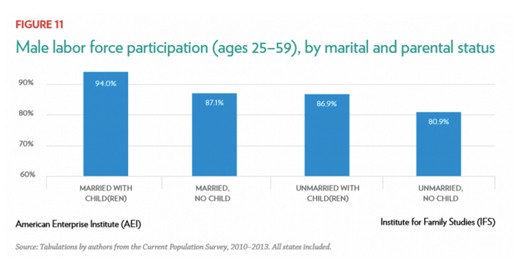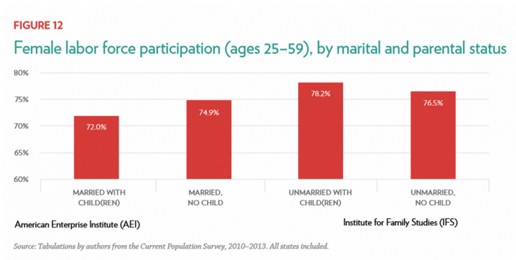The Satisfaction-Bringing Family
The family is a dangerous institution.
Which is why the forces of evil are aggressively targeting it. The family—consisting of one man and one woman in lifelong wedlock, and their children—is God’s ordained means of filling the earth (Genesis 1:28, 2:24, 4:1, 9:1). This poses a threat to those who worship nature, and thus want to reduce world population. Not only that, the family is also a reflection of Christ’s relationship to the church (Ephesians 5:22-33). This poses a threat to those who worship themselves, and thus reject the concepts of self-sacrifice and submission.
Further, the family is the nuclear institution for raising up the next generation in righteousness (Deuteronomy 6:7, Ephesians 6:4). This poses a threat to those who worship power, and thus want young minds to be left exclusively to themselves and their indoctrination. All in all, if you are looking to wreak maximum havoc on the earth, then one of the most dangerous institutions you will ever encounter is the family. And those who are looking to wreak havoc on the earth are doing their best to get rid of it.
However, an all-out assault on the family structure would be a bit too obvious. People have a God-given desire for the joys of family built into their souls and trying to convince them that they shouldn’t start families might not gain very much traction. As is the case with many contemporary strains of leftist strategy, it’s a lot easier to just slip in “alternatives” to God-given structures and paint them as a liberating, fulfilling, alternate norm.
A recent Bloomberg report did just so, by exploring the lives of successful, single, childless women, showing how avoiding marriage and childbearing improved their careers and personal wealth. According to Bloomberg, a rising cohort of women is choosing to delay or skip motherhood.
“As a result, many are advancing further in their careers than prior generations and entering a new frontier of wealth.”
While single mothers only made a median wage of $7,000 in 2019, single women without kids made a median of $65,000. Bloomberg explains that one woman interviewed
“relishes all of the lifestyle and financial freedoms that come with being a single, child-free woman in a well-paying job. That includes an apartment in New York City, a new beach house on the Jersey Shore, and frequent travel for pleasure as well as work.”
Further,
“she has a message for women just like her: You can still have it all. . . . ‘I love my life and feel very fulfilled.’ ”
Another successful, single woman highlighted her freedom to travel at will without a family holding her back and boiled her thinking down to
“I’d rather regret not having kids than regret having them.“
Such anecdotes may seem to support the idea that a family-free life is more advantageous than—and can be just as fulfilling as—a married one. However, as a general rule, neither the claim to financial advantage nor the claim to life satisfaction turn out to be true. As Brad Wilcox (sociology professor at the University of Virginia) and Alysse ElHage (editor of Family Studies) Newsweek retort,
“There’s just one problem with this kind of anti-nuptial and anti-natalist reporting: It’s completely false. In fact, the Bloomberg story is based on data derived only from single Americans, meaning there is no basis for comparison with married women.”
While single childless women may indeed make significantly more than single mothers, neither comes close to married mothers’ mean household income—$133,000. As for life satisfaction, Wilcox and ElHage point to data from the 2022 American Family Survey:
“Thirty-three percent of married mothers ages 18-55 say they are ‘completely satisfied’ with their lives, compared to 15 percent of childless women 18-55 . . . What’s more, single, childless women are about 60 percent more likely to report feelings of loneliness compared to married mothers.”
While the mainstream narrative shouts that a career without an encumbering family is the secret to a happy life, the stats show the opposite.
Very few people will believe the outright lie, “the family is bad,” but many might believe the more subtle temptation, “the family is a waste of time; you could live a better life without one.” However, attacks on the family that paint singleness to be just as fulfilling and even more financially advantageous don’t stand up to serious scrutiny. As happens so often when man thinks he has found a better plan than God’s, man’s grand ideas splinter against the solid realities of God’s world.
The Institute for Family Studies sums it up well:
“Too many [liberals] have embraced the false narrative that the path to happiness runs counter to marriage and family life, not towards it. They think independence, freedom, and work will make them happy, which is why significant portions of the popular media are filled these days with stories celebrating divorce and singleness. . . . The secret to happiness, for most men and women, involves marriage and a life based around the family.“




